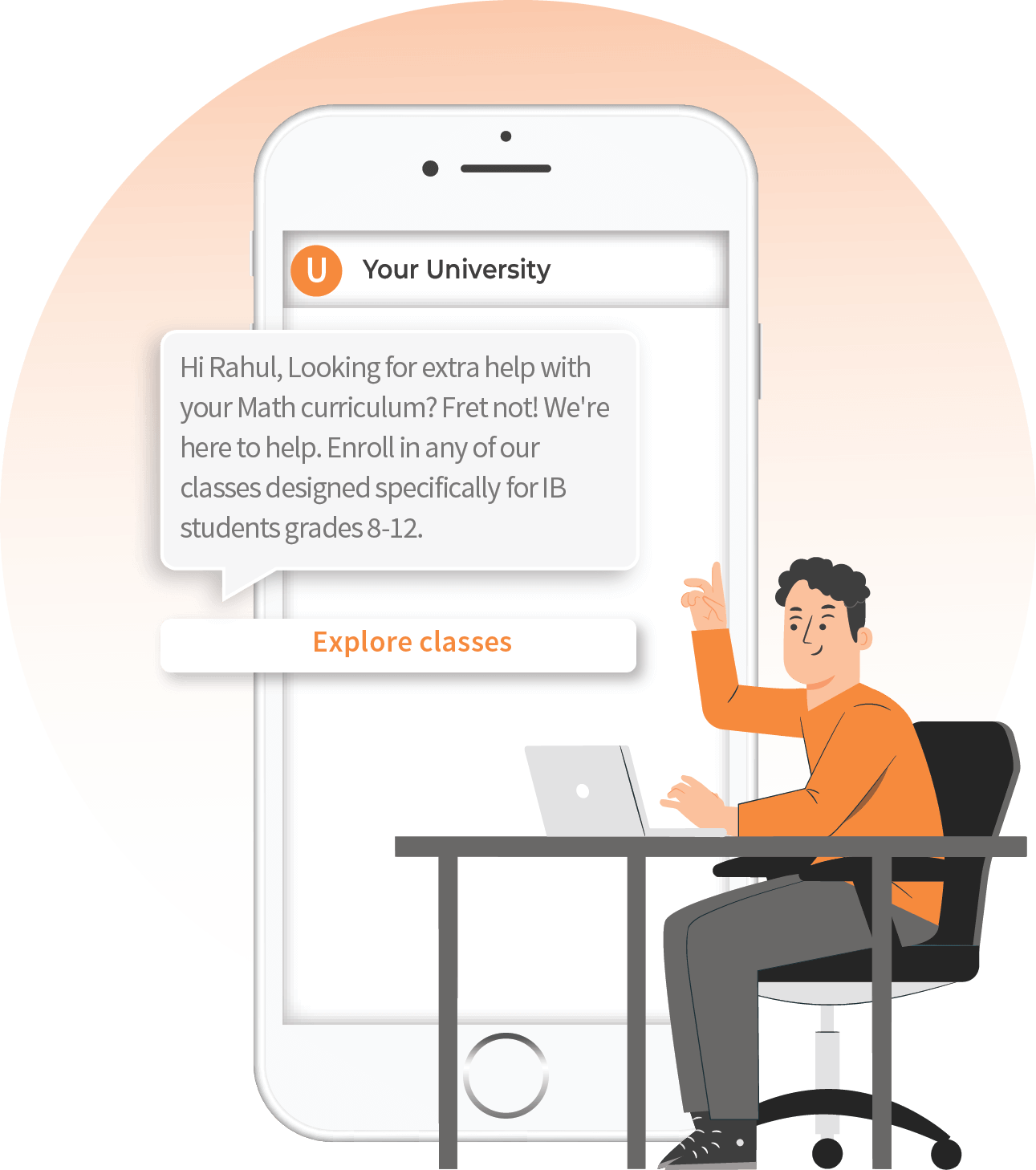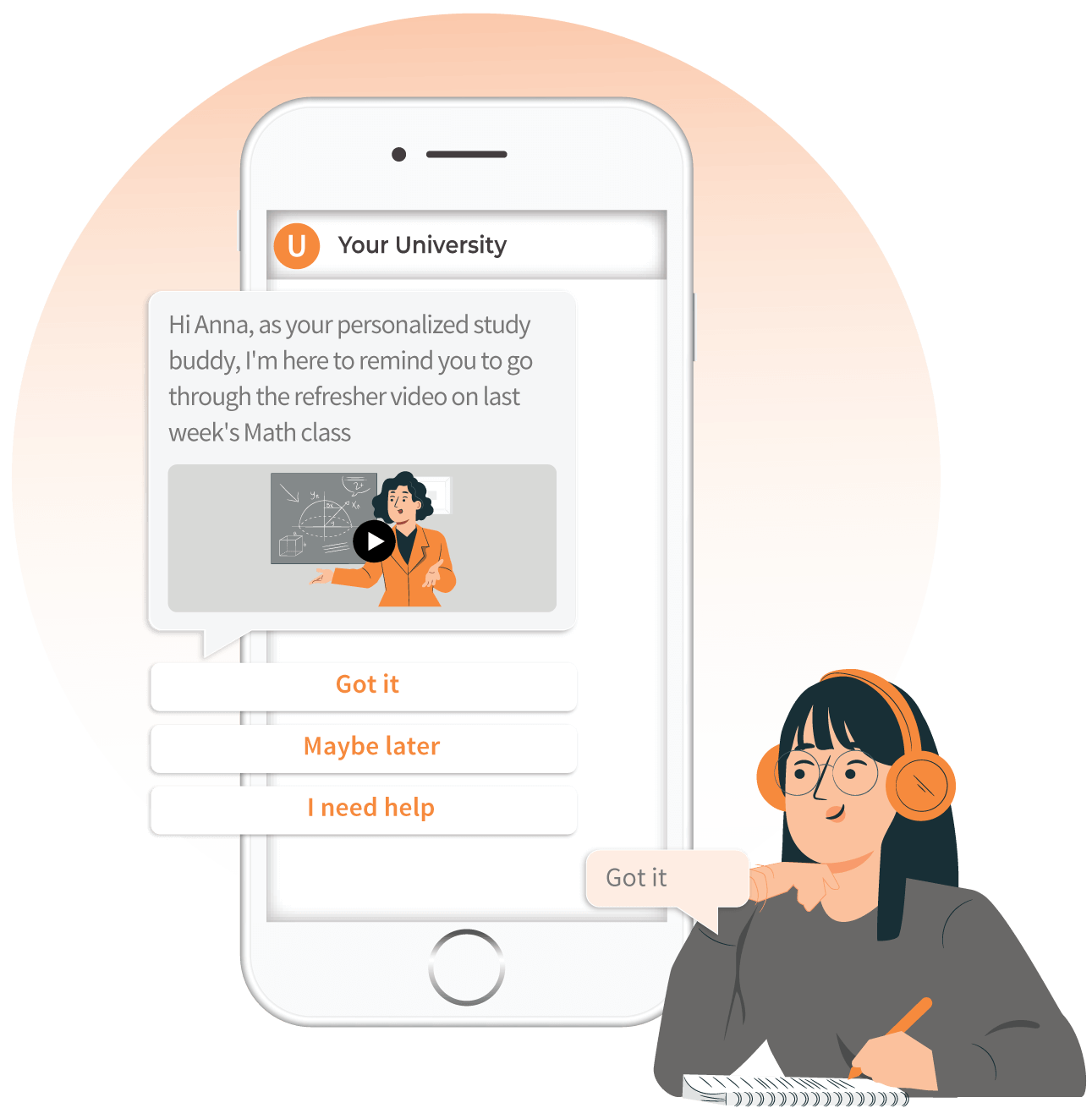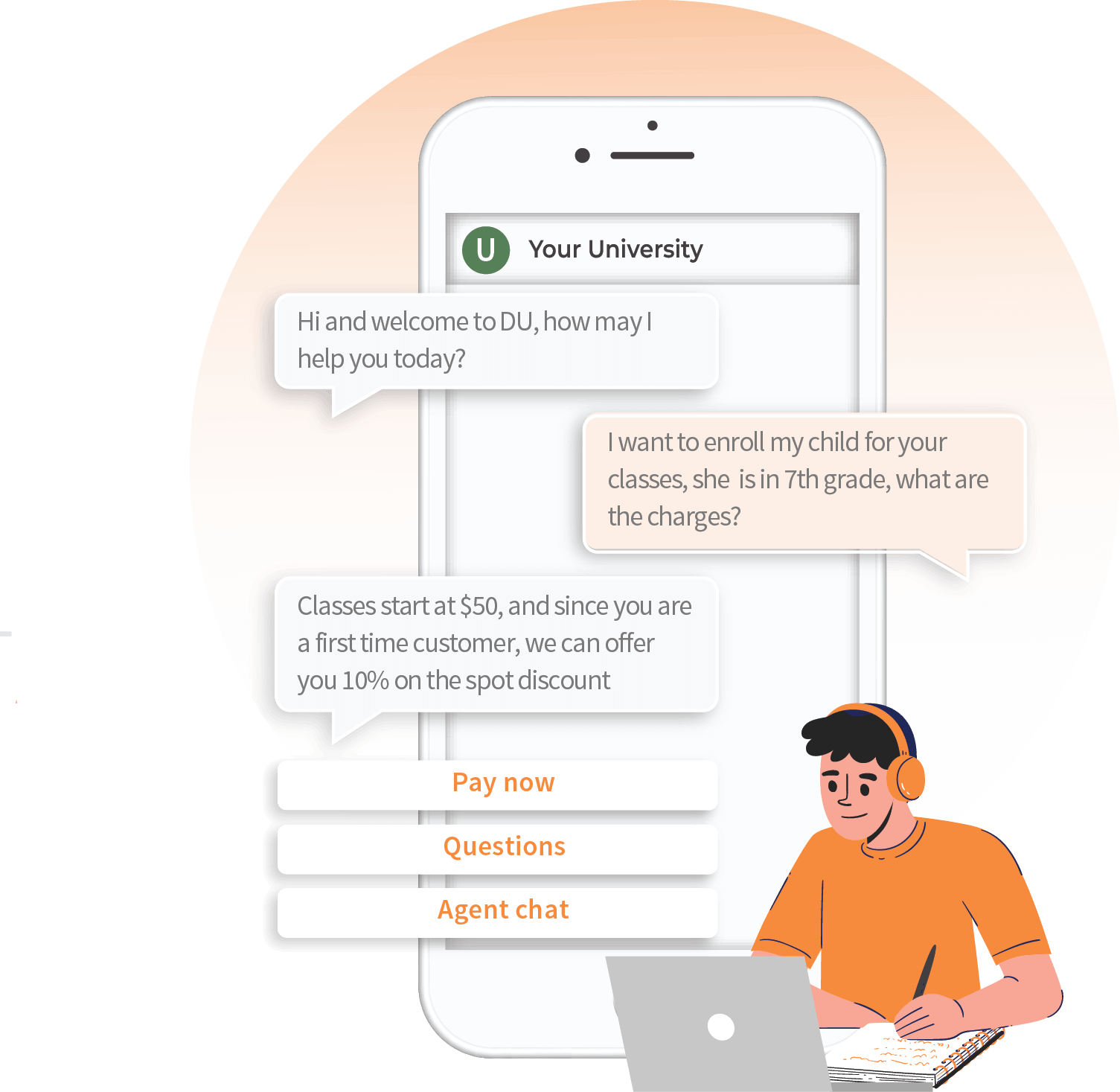EDUCATION
Boost Student Engagement with AI Chatbots for Better Experience
We can improve the student experience with better course discovery, one-on-one consultations, and automated responses to FAQs using AI chatbots. These chatbots offer seamless communication through written and spoken interfaces.

Trusted by Leading Brands






To Streamline the Process of
Student Outreach and Acquisition
-
Engage students proactively on their preferred apps like WhatsApp, Google Business Messages, and Instagram to enable personalized outreach, course discovery, and trial classes.
-
Simplify student onboarding by automating registration, assigning learning guides, and providing seamless support at every step.
-
Optimize costs by aiming for a 33% student acquisition rate through high-quality services, smooth onboarding, and active engagement on preferred channels.


To Provide a More
Convenient and Engaging
Learning Experience
-
Offer tailored learning opportunities with customized timetables and module schedules.
-
Increase engagement and retention with real-time reminders, learning tips, quizzes, and rich media sent via popular messaging channels like WhatsApp and Voice.
-
Upsell and cross-sell personalized course suggestions through messaging platforms with a rich UI to help learners discover new topics and achieve their learning goals.
- Improve adherence and retention rates by up to 49% by implementing these strategies, which provide learners with the resources they need and personalized support throughout their learning journey.
Provide 24/7 Multi-Language Support for Student Queries
-
Automate support for efficiency while reserving human intervention for critical queries.
- Notify learners of new content and live classes through SMS and social media to keep them engaged.
- Reduce support costs by up to 42% by automating low-level queries and providing timely updates.

We Offer Several Advantages that Set us Apart from
Other Student Assistant Services

Our AI student assistant provides pre-built micro journeys that cover course discovery, program scheduling, payment plans, and more.

We integrate with over 30 messaging channels, including text, voice, and video, to connect with students on their preferred platform.

We utilize 1-Click-Billpay technology to send course renewal reminders with payment links for UPI, wallets, and other payment options.

Our live-chat support with trained counsellors ensures immediate assistance for student inquiries.

We provide student demand analytics, offering insights on live classes in demand, frequently asked questions, potential new courses, and more.
Frequently Asked Questions
Conversational AI chatbots can be used in educational institutions to streamline administrative processes, provide personalized support to students, and enhance the overall learning experience. Some examples of how chatbots can be used in education include:
- Admissions: Chatbots can provide information about admission requirements, deadlines, and procedures, as well as answer frequently asked questions from prospective students.
- Student support: Chatbots can provide personalized assistance to students on academic and non-academic matters, such as course registration, financial aid, and campus resources.
- Learning assistance: Chatbots can assist students with their learning by providing access to educational materials, answering questions about course content, and offering study tips and strategies.
- Administrative tasks: Chatbots can assist administrative staff with tasks such as scheduling appointments, managing calendars, and processing paperwork.
According to a report by Technavio, the global market for chatbots in education is expected to grow at a compound annual growth rate (CAGR) of over 32% from 2020 to 2024. While there is no exact percentage of educational institutions currently using chatbots, it is clear that the adoption of chatbots in education is on the rise. Many educational institutions, including universities and K-12 schools, are exploring the potential of chatbots to enhance the learning experience and streamline administrative processes.
Information security is a critical concern when developing a chatbot for the education sector. To ensure that student and institutional data is protected, the following measures should be taken:
- Encryption: All data transmitted between the chatbot and users should be encrypted to prevent interception and unauthorized access.
- Authentication: The chatbot should verify the identity of users to prevent unauthorized access to sensitive data.
- Access control: Access to sensitive data should be limited to authorized personnel only, and access should be granted on a need-to-know basis.
- Regular audits: The chatbot should be regularly audited to ensure that security protocols are being followed and to identify and address any vulnerabilities.
- Compliance: The chatbot should comply with all relevant data privacy and security regulations, such as GDPR and HIPAA.







